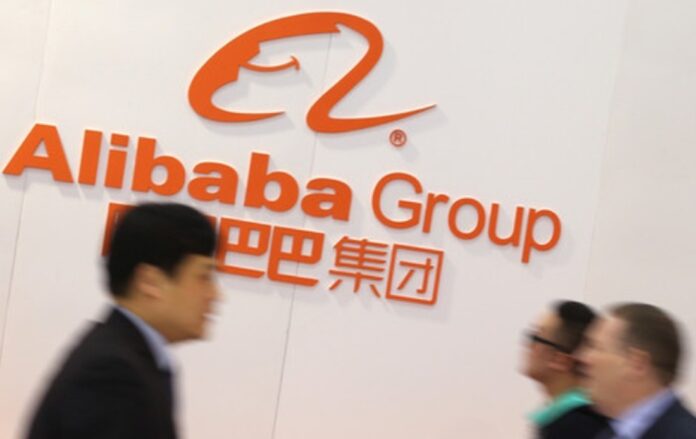KUALA LUMPUR, Sept 26 — Malaysian small and medium-sized enterprises (SMEs) are now able to strengthen their foothold in the international halal market following the launch of a dedicated online Halal Pavilion on the Alibaba.com business-to-business (B2B) platform.
Launched in conjunction with the 18th Malaysia International Halal Showcase (MIHAS), the Halal Pavilion will spotlight certified Malaysian halal suppliers, making it easier for them to grasp demand from buyers in more than 190 countries on Alibaba.com, ahead of sellers from all other markets.
The Halal Pavilion features multiple product categories with a stronger emphasis on food and beverages.
Alibaba.com Asia Pacific head of marketing and business development Nianci Phang said with a shift of B2B buyers towards e-commerce, as a legacy of the global pandemic, they have seen growth in halal products enquiries.
She said Alibaba.com recorded a year-on-year jump of 39 per cent in buyer enquiries from 2020 to 2021, of which 21 per cent were sent to Malaysian suppliers.
“The top buyer countries that are sending the enquiries include the United States, United Kingdom, Brazil and Pakistan.
“So, it’s not what we imagined that it (enquiries) should only be coming from Muslim countries, or the Middle East region,” she told reporters at the Alibaba.com online Halal Pavilion launch earlier this month.
Hence, she urged Malaysian SMEs to think beyond what they traditionally know, or beyond the traditional export sphere.
“E-commerce opens up a whole larger world of possibilities. With all the online data, Alibaba.com sellers can see which country is sending the highest number of enquiries into their products,” she explained.
Phang said the Halal Pavilion is also an important step toward making Alibaba.com’s marketplace more inclusive for global buyers with special sourcing needs while helping Malaysian SMEs better capture market opportunities.
Despite many challenges faced by SMEs in export, she firmly believes that Malaysian halal SMEs that are open to establishing an online presence and making full use of digital and e-commerce tools are much better positioned to grow their global footprint.
A good example is Yong Mama, a second-generation halal snack food manufacturer based in Perak.
The company had been primarily selling to the domestic market with small-scale exports to Singapore for 20 years.
Due to the pandemic, the company onboarded Alibaba.com in 2020. Since then, Yong Mama’s manufacturing volume for export surged by 80 per cent in addition to receiving enquiries from Brunei, Egypt, Thailand, the United Kingdom and the United States.
Besides Singapore, they have also grown exports to South Korea, and within six months after getting the first enquiry from Cambodia, have fulfilled not one but a second repeat order.
Yong Mama Food Industries Sdn Bhd co-founder H.G Cheah said to flourish in the global B2B e-commerce market, Malaysian businesses need to develop a clear strategy. first and identify what is trending in the targeted markets and the right products to export.
“It is also important to understand and comply with regulations in each respective market while keeping an eye on new opportunities.
“E-commerce enabled Yong Mama to grow from a micro SME (MSME) selling mainly to domestic customers into a global company,” he said.
Through Alibaba.com, Phang said suppliers who have onboarded the platform automatically enjoy not only access to buyers in more than 190 countries but are also able to manage and own customer relationships while building a successful online export business strategy.
She noted that as the only B2B marketplace in Malaysia offering an end-to-end digital trade experience, Alibaba.com provides Malaysian SME exporters with a comprehensive suite of services covering online store management, translation support, digital marketing and sourcing, online transaction, logistics, customs clearance, foreign exchange and platform analytics.
“We also offer sellers a larger range of marketing opportunities through online sales festivals such as ‘Super September’, which is Alibaba.com’s largest annual B2B sourcing event, attracting millions of buyers all over the world,” she said.
Phang highlighted that Alibaba.com had also introduced an order protection service, called Trade Confidence in Malaysia, as early as 2017, and further enhanced it in 2021, to help create trust between buyers and suppliers and cover buyer’s losses in the event of payment, shipping and product quality-related disputes.
She said the service is a demonstration of Alibaba.com’s commitment to boosting the profile of Malaysian SMEs in global trade.
Meanwhile, Malaysia External Trade Development Corporation (MATRADE) deputy chief executive officer (Exporters Development), Abu Bakar Yusof said the Halal Pavilion was another milestone for Alibaba.com to digitalise Malaysian MSMEs and utilise MATRADE’s cross-border e-commerce assistance programme: eTRADE.
The initiative started in the 11th Malaysia Plan, of which Alibaba.com was one of the first MATRADE’s strategic partners in strengthening Malaysian MSMEs’ digital readiness.
“The government realised the importance of cross-border e-commerce export even before the onset of COVID-19.
“Due to the pandemic, MATRADE had intensified efforts and continued with its enhanced cross-border e-commerce eTRADE 2.0 programme, in which we opened up to more local and international cross-border commerce platforms,” he said.
Abu Bakar also said that MATRADE appreciates the continuous collaboration with Alibaba.com.
“Under the 12th Malaysian Plan, the government has set a target of export contribution by MSMEs at 25 per cent by 2025, compared to only a 11.7 per cent contribution last year.
“So, we have a long way to go but Malaysian MSMEs have to ramp up their promotion efforts, not only just relying on traditional or conventional methods but utilising e-commerce towards exporting digitally,” he said.
















